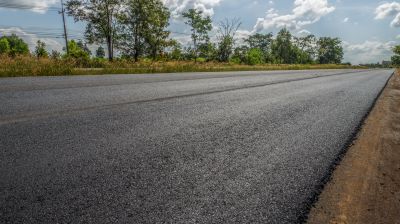Favorite Asphalt Sealings Products To Maintain And Restore Pavement Quality
Browse the most popular asphalt sealing options that help restore and preserve your driveway or parking lot.
 In Franklin, Tennessee, maintaining asphalt surfaces is essential for both residential and commercial properties. Proper asphalt sealing products can help protect pavements from the damaging effects of water, UV rays, and freeze-thaw cycles. Selecting the right product involves understanding the different types of sealers available, their application methods, and their suitability for specific asphalt conditions. Whether for driveway maintenance or large parking lot upkeep, choosing quality sealing products can extend the lifespan of asphalt surfaces and improve their appearance.
In Franklin, Tennessee, maintaining asphalt surfaces is essential for both residential and commercial properties. Proper asphalt sealing products can help protect pavements from the damaging effects of water, UV rays, and freeze-thaw cycles. Selecting the right product involves understanding the different types of sealers available, their application methods, and their suitability for specific asphalt conditions. Whether for driveway maintenance or large parking lot upkeep, choosing quality sealing products can extend the lifespan of asphalt surfaces and improve their appearance.
Top Overall Option
Premium Asphalt Sealer
A versatile and durable asphalt sealer designed to provide a protective coating that can enhance the appearance and longevity of asphalt surfaces. It offers ease of application, good adhesion, and a smooth finish suitable for various project sizes. Ideal for those seeking a reliable solution to maintain and protect asphalt pavements.
Types of Products For Asphalt Sealings
Coal Tar-Based Sealers
Known for their durability and long-lasting protective layer, coal tar-based sealers are commonly used for commercial parking lots and high-traffic areas.
Asphalt-Based Sealers
Flexible and easy to apply, asphalt-based sealers are suitable for residential driveways and smaller projects.
Water-Based Sealers
Offering a low VOC formulation, water-based sealers are favored for their ease of cleanup and suitability for DIY applications.
Latex Sealers
These sealers provide quick drying times and are often used for decorative purposes or light traffic areas.
Polymer-Modified Sealers
Enhanced with polymers for increased flexibility and resistance to cracking, ideal for areas prone to movement.
Driveway Sealers
Designed specifically for residential driveways, these sealers focus on appearance and surface protection.
Parking Lot Sealers
Formulated for larger areas with high traffic, offering long-term protection and durability.
Crack Sealants
Used to fill and seal cracks before applying a surface sealer, helping prevent water infiltration.
Emulsion Sealers
A blend of asphalt and water, these sealers are easy to apply and provide a uniform coating.
Silicone-Based Sealers
Providing excellent water repellency and UV resistance, suitable for areas exposed to harsh weather.
Resin Sealers
Offering a high-gloss finish and enhanced protection, often used for decorative asphalt surfaces.
Polyurethane Sealers
Known for their toughness and chemical resistance, used in industrial or commercial settings.
Popular Choices
Widely used for its reliable performance and ease of application across various asphalt surfaces.
A common choice for high-traffic areas due to its long-lasting protective qualities.
Popular for DIY projects and small-scale applications because of its low VOC content and simple cleanup.
Chosen for areas requiring added flexibility and resistance to cracking.
Frequently selected by homeowners looking to protect and enhance the appearance of residential driveways.
Ideal for commercial properties needing durable, long-lasting surface protection.
Essential for pre-sealing crack repairs to extend the life of asphalt surfaces.
Popular for its ease of application and uniform coverage on various asphalt surfaces.
Selected for its water repellency and UV resistance, suitable for exposed areas.
Chosen for decorative asphalt projects and surfaces requiring a high-gloss finish.
Asphalt sealers come in various formulations, including coal tar-based, asphalt-based, and water-based options. Each type offers unique benefits and considerations, such as drying time, durability, and ease of application. For example, coal tar sealers are known for their long-lasting protective layer, while asphalt-based sealers tend to be more flexible and easier to work with. Water-based sealers often provide a low VOC alternative with simpler cleanup, making them suitable for smaller projects or DIY enthusiasts.
Proper application techniques are crucial for achieving optimal results. Surface preparation, such as cleaning and repairing cracks, ensures the sealer adheres properly and provides effective protection. Additionally, weather conditions, including temperature and humidity, can influence drying times and final appearance. Regular maintenance and timely resealing can help preserve asphalt surfaces, preventing costly repairs and maintaining curb appeal.
When selecting asphalt sealing products, it is important to consider the specific needs of your project, including the size of the area, traffic levels, and environmental exposure. Consulting product labels and manufacturer guidelines can help determine the most suitable type for your application. By choosing the right sealing products and applying them correctly, property owners in Franklin and beyond can help safeguard their asphalt surfaces against common forms of deterioration.
Key Buying Considerations
- Determine the type of sealer best suited for your project (coal tar, asphalt, water-based, etc.).
- Assess the size of the area to be sealed to estimate product quantity needed.
- Consider the traffic level and exposure to elements to select appropriate durability features.
- Check drying and curing times to plan application schedules effectively.
- Review surface preparation requirements, including cleaning and crack repairs.
- Evaluate ease of application, especially if DIY application is intended.
- Look into the environmental conditions during application, such as temperature and humidity.
- Ensure the product is compatible with existing asphalt surfaces and repairs.
- Consider the finish appearance, such as matte or glossy, based on aesthetic preferences.
- Review safety and ventilation guidelines, especially for products with strong fumes.
- Compare long-term performance and maintenance needs of different products.
- Verify manufacturer instructions for application methods and safety precautions.
- Check for any additional features like UV resistance, water repellency, or crack resistance.
- Determine budget constraints and balance cost with expected performance.
- Consult local regulations or HOA guidelines regarding sealing products.
